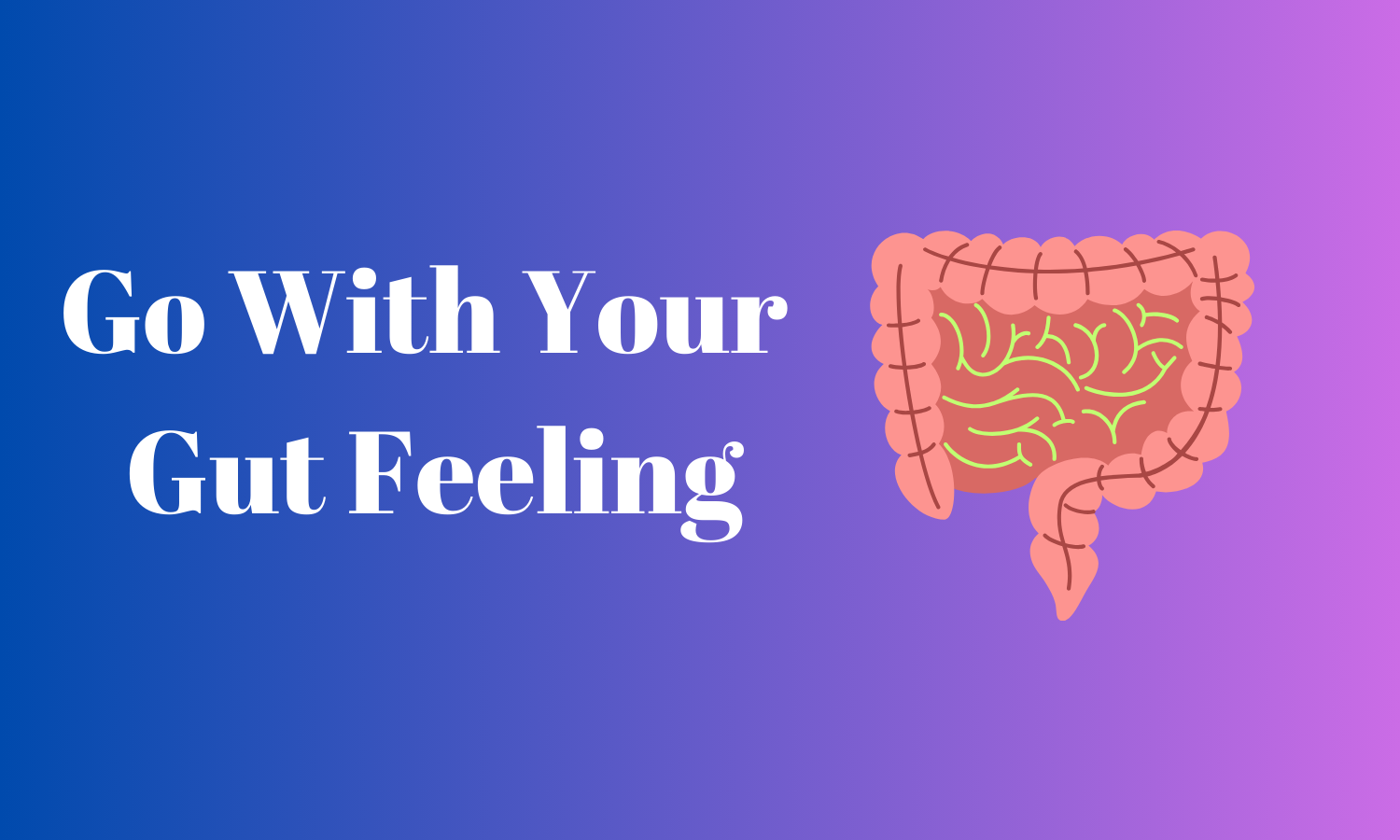We’ve all experienced that “gut feeling,” an intuitive sense that something is right or wrong. But did you know your gut is more than just a hunch-generator? It’s a complex ecosystem, a bustling metropolis of microorganisms working tirelessly to keep you healthy. In fact, your gut is so crucial to your overall well-being that scientists often refer to it as your “second brain.”
In India, our diverse diets and lifestyles have a unique impact on our gut health. From the spice-laden curries of the north to the fermented delights of the south, our culinary traditions have shaped the intricate microbial communities within us. But with modern lifestyles and dietary shifts, it’s more important than ever to understand how to nurture and protect this vital part of ourselves.
In this comprehensive guide, we’ll delve into the fascinating world of gut health, exploring its impact on everything from digestion and immunity to mental health and chronic disease prevention. We’ll uncover the secrets of your gut microbiome, the signs of an unhealthy gut, and the dietary and lifestyle changes that can transform your well-being. Get ready to discover how a happy gut can lead to a happier, healthier you!
Table of Contents
ToggleWhat is Gut Health? Understanding Your Microbiome
Your gut microbiome is a bustling metropolis of trillions of microorganisms, including bacteria, viruses, fungi, and other microbes. It’s a complex ecosystem, a world within you that plays a crucial role in your overall health. These microscopic residents aren’t just freeloaders; they’re hard at work, performing essential functions that impact your entire body.
The Gut Microbiome: Your Inner Ecosystem
Imagine your gut as a vibrant city, teeming with diverse inhabitants. Some of these microbes are like the friendly neighbors who help you out, while others are more like the troublemakers who stir up problems. A healthy gut microbiome is one where the “good guys” outnumber the “bad guys,” maintaining a harmonious balance.
- Beneficial Bacteria: These microbes help digest food, produce essential vitamins, and train your immune system to fight off harmful invaders. They’re like the police force, keeping the peace and protecting you from harm.
- Harmful Bacteria: These microbes can cause inflammation, damage your gut lining, and contribute to various health problems. They’re like the criminals, disrupting the peace and causing havoc.
Why Gut Health Matters: It’s Not Just About Digestion
A healthy gut microbiome does more than just help you digest your food. It’s a key player in your overall well-being, influencing everything from your immune system to your mental health:
- Digestion and Nutrient Absorption: Your gut bacteria break down food into usable nutrients, ensuring your body gets the fuel it needs to thrive.
- Immunity: A whopping 70% of your immune system resides in your gut! Your gut bacteria help train your immune cells to distinguish between friend and foe, protecting you from infections and diseases. It is recommended to have immunity boosters regularly to improve body immunity.
- Mental Health: The gut-brain connection is a hot topic in research. Studies have shown that gut bacteria can influence mood, stress levels, and even cognitive function.
- Chronic Disease Prevention: An imbalanced gut microbiome has been linked to various chronic conditions, including obesity, diabetes, heart disease, and autoimmune disorders.
The Gut-Brain Connection: Your Second Brain
Your gut and brain are constantly communicating through a complex network of nerves, hormones, and neurotransmitters. This communication highway is known as the gut-brain axis.
- Stress and Mood: Ever felt butterflies in your stomach when nervous? That’s your gut-brain connection at work. Stress can disrupt your gut microbiome, leading to digestive problems and mood swings.
- Neurotransmitters: Your gut bacteria produce neurotransmitters like serotonin, often called the “happy hormone.” An imbalance in gut bacteria can affect serotonin production, potentially contributing to mood disorders like anxiety and depression.
Understanding the importance of gut health is the first step towards taking control of your well-being. By nurturing your gut microbiome, you’re not just supporting digestion; you’re investing in your overall health and happiness.
Signs of an Unhealthy Gut: Is Your Tummy Trying to Tell You Something?
Your gut is a master communicator, constantly sending signals about its state of well-being. Unfortunately, we often ignore these messages until they become blaring alarms. Recognizing the early signs of an unhealthy gut can help you address issues before they escalate into major problems.
Common Digestive Issues: The Obvious Clues
- Bloating: Feeling like you’ve swallowed a balloon? Bloating is a common sign of gas buildup in your gut, often caused by an imbalance in your gut bacteria or difficulty digesting certain foods.
- Gas: Excessive gas can be embarrassing and uncomfortable. It’s often a byproduct of bacterial fermentation in the gut, especially when your microbiome is out of balance. There are many Gastro-resistant generic medicines available to deal with this problem.
- Constipation: Difficulty passing stools or infrequent bowel movements can indicate that your gut isn’t functioning optimally. A lack of fiber or beneficial bacteria can contribute to constipation.
- Diarrhea: Frequent, loose stools can be a sign of infection, inflammation, or an imbalance in your gut bacteria. It’s important to address diarrhea promptly to prevent dehydration.
- Indigestion: That burning sensation or discomfort in your upper abdomen after eating is often a sign of indigestion. While occasional indigestion is normal, frequent episodes could signal a gut health issue.
Beyond the Gut: The Unexpected Signs
Believe it or not, your gut health can affect more than just your digestive system. An imbalanced gut can manifest in surprising ways:
- Skin Problems: Skin conditions like eczema, acne, and psoriasis have been linked to gut inflammation and imbalances in the gut microbiome.
- Fatigue: Feeling constantly tired even after a good night’s sleep? Your gut might be the culprit. Gut bacteria play a role in energy production, and an unhealthy gut can disrupt this process.
- Food Sensitivities: If you find yourself reacting to certain foods with symptoms like bloating, headaches, or skin rashes, it could be a sign of a leaky gut or food intolerances.
- Mood Swings: Your gut and brain are intimately connected. An unhealthy gut can affect neurotransmitter production, potentially contributing to mood swings, anxiety, and depression.
When to Seek Help: Don’t Ignore Your Gut’s Pleas
If you experience any of these symptoms regularly or severely, it’s crucial to consult a doctor or healthcare professional. They can help you determine the underlying cause of your gut problems and recommend appropriate treatment options. Remember, early intervention is key to restoring gut health and preventing complications.
Important Note: In India, where self-medication is common, it’s essential to resist the urge to self-diagnose or self-treat gut issues. Consulting a qualified healthcare professional is always the safest and most effective approach.
By paying attention to your body’s signals and seeking help when needed, you can address gut problems early on and enjoy the many benefits of a healthy gut. Your gut is your ally, and listening to it can unlock the path to a healthier, happier life.
The Gut-Health Diet: Nourishing Your Microbiome the Indian Way
The adage “you are what you eat” couldn’t be truer when it comes to your gut health. The food you consume directly influences the balance of bacteria in your gut, shaping your overall well-being. Luckily, the Indian diet is naturally abundant in ingredients that can nurture your microbiome and promote a thriving gut ecosystem.
Fiber is Your Friend: The Gut Bacteria’s Favorite Feast
Dietary fiber is the unsung hero of gut health. It acts as a prebiotic, providing essential nourishment for the beneficial bacteria in your gut. These microbes ferment fiber, producing short-chain fatty acids that have numerous health benefits, including reducing inflammation, strengthening your gut lining, and even regulating blood sugar levels.
Fortunately, Indian cuisine is packed with fiber-rich options:
- Whole Grains: Opt for whole wheat roti, brown rice, jowar, bajra, and other traditional grains over their refined counterparts. These whole grains are packed with fiber that keeps your gut bacteria happy and your digestion smooth.
- Legumes (Dal): Lentils, chickpeas, kidney beans, and other legumes are not only a great source of protein but also a powerhouse of fiber. Include a variety of dals in your daily diet to promote gut diversity and health.
- Fruits and Vegetables: Load up your plate with a colorful array of seasonal fruits and vegetables. From leafy greens like spinach and fenugreek to fibrous fruits like apples, pears, and guava, the options are endless.
Probiotic Powerhouses: Fermented Foods for Gut Health
Fermented foods are a cornerstone of Indian cuisine, and they offer a natural source of beneficial bacteria (probiotics) that can replenish your gut microbiome. These live cultures not only aid digestion but also strengthen your gut barrier and support your immune system.
Embrace these probiotic-rich Indian staples:
- Curd (Dahi): A daily dose of homemade curd can do wonders for your gut. It’s a rich source of Lactobacillus bacteria, which help maintain a healthy balance of gut microbes.
- Buttermilk (Chaas): This refreshing drink is not only hydrating but also teeming with probiotics that aid digestion and soothe an irritated gut.
- Idli and Dosa: These South Indian staples, made from fermented rice and lentils, are a delicious way to introduce beneficial bacteria into your diet.
- Dhokla: This fluffy, fermented snack is a Gujarati favorite for a reason. It’s packed with gut-friendly microbes that support digestion and overall gut health.
Prebiotics: Fuel for the Good Guys
While probiotics add good bacteria to your gut, prebiotics act as their food source. By incorporating prebiotic-rich foods into your diet, you’re essentially feeding the beneficial microbes in your gut, helping them thrive and multiply.
Look for these prebiotic powerhouses in your pantry:
- Onions and Garlic: These pungent kitchen staples are rich in inulin, a type of fiber that serves as fuel for beneficial gut bacteria.
- Bananas: Not only are they a convenient and healthy snack, but bananas also contain prebiotic fibers that promote gut health.
- Oats: A warm bowl of oatmeal is not just a comforting breakfast; it’s also a prebiotic-rich meal that nourishes your gut microbiome.
Remember, a healthy gut is a diverse gut. By incorporating a variety of fiber-rich, probiotic, and prebiotic foods into your Indian diet, you can create a thriving ecosystem within your gut that supports your overall health and well-being.

Spice It Up: The Gut-Health Benefits of Indian Spices
India is renowned for its vibrant and aromatic spices, which not only tantalize our taste buds but also offer a wealth of benefits for our gut health. These spices have been used in traditional Indian medicine for centuries to aid digestion, reduce inflammation, and promote overall well-being.
Here are some gut-friendly spices you can easily incorporate into your daily meals:
- Turmeric (Haldi): This golden spice is a powerhouse of curcumin, a compound with potent anti-inflammatory and antioxidant properties. Turmeric has been shown to improve gut barrier function, reduce inflammation in the gut, and even promote the growth of beneficial bacteria.
- Ginger (Adrak): Ginger is known for its ability to soothe digestive ailments like nausea, indigestion, and bloating. It helps stimulate digestion, reduce gas, and alleviate inflammation in the gut.
- Cumin (Jeera): This earthy spice is a common ingredient in many Indian dishes, and for good reason. Cumin aids digestion by stimulating the production of digestive enzymes, reducing gas, and promoting bowel regularity.
- Coriander (Dhania): Coriander seeds and leaves offer digestive benefits, helping to alleviate bloating, gas, and indigestion. Coriander also has antimicrobial properties that may help fight off harmful bacteria in the gut.
- Fennel (Saunf): Fennel seeds are often consumed after meals in India for their digestive properties. They help reduce gas, bloating, and stomach cramps. Fennel also has a soothing effect on the gut lining, promoting a healthy digestive environment.
- Black Pepper (Kali Mirch): Black pepper not only adds a kick of flavor to dishes but also aids digestion by stimulating the production of hydrochloric acid in the stomach. This helps break down food more efficiently and improves nutrient absorption.
Foods to Limit: What to Watch Out For
While the Indian diet is rich in gut-friendly foods, there are some elements that can disrupt the delicate balance of your microbiome:
- Processed Foods: Packaged snacks, sugary drinks, and refined grains are often low in fiber and high in sugar, unhealthy fats, and artificial additives. These can negatively impact your gut bacteria, promoting the growth of harmful microbes and leading to inflammation.
- Sugary Drinks: Excessive consumption of sugary drinks like soda, sweetened tea, and fruit juices can disrupt the balance of gut bacteria and contribute to digestive problems.
- Red Meat: While lean meat can be part of a healthy diet, excessive consumption of red meat, especially processed varieties, has been linked to an increased risk of gut inflammation and certain types of cancer.
Hydration Habits: Water for a Healthy Gut
Water plays a crucial role in gut health. It helps soften stools, preventing constipation, and aids in the absorption of nutrients. Aim to drink at least 8-10 glasses of water throughout the day to keep your gut hydrated and functioning optimally.
Ayurveda and Gut Health: An Ancient Wisdom
Ayurveda, the ancient Indian system of medicine, emphasizes the importance of gut health for overall well-being. It recognizes that an imbalance in the doshas (vata, pitta, and kapha) can lead to digestive problems and other health issues.
Ayurvedic principles for gut health include:
- Eating Mindfully: Slow down, savor your food, and avoid distractions while eating.
- Balancing Your Diet: Choose foods that are appropriate for your dosha type and the season. One can have vitamin supplements to get the necessary nutrients.
- Using Digestive Spices: Incorporate spices like ginger, cumin, and coriander to aid digestion.
- Practicing Yoga and Meditation: These practices can help reduce stress, which is a major contributor to gut problems.
By combining the wisdom of Ayurveda with modern scientific understanding, you can create a gut-health plan that suits your individual needs and promotes optimal well-being.
Gut Health and Chronic Diseases: The Connection You Can't Ignore
- Emerging research has revealed a fascinating link between gut health and chronic diseases, including some of the most prevalent conditions affecting Indians today: diabetes, hypertension, and heart disease. While more studies are needed to fully understand the mechanisms involved, the evidence suggests that your gut microbiome plays a significant role in the development and management of these conditions.
Diabetes and Your Gut
- The Gut-Glucose Connection: Studies have shown that people with type 2 diabetes often have a different gut microbiome composition compared to those without the condition. Certain gut bacteria can influence insulin sensitivity and blood sugar regulation, potentially contributing to the development or progression of diabetes.
Manage the Diabetes effectively using Diet and exercise.
- Fiber and Blood Sugar Control: A high-fiber diet, rich in whole grains, legumes, fruits, and vegetables, has been shown to improve blood sugar control in people with diabetes. This is partly due to the beneficial effects of fiber on gut bacteria, which help regulate glucose metabolism.
Hypertension and Your Gut
- Gut Bacteria and Blood Pressure: Research suggests that an imbalance in gut bacteria may contribute to high blood pressure. Certain gut microbes can produce substances that affect blood vessel function and inflammation, potentially raising blood pressure.
- Probiotics and Blood Pressure: Some studies have found that probiotic supplements may help lower blood pressure in people with hypertension. However, more research is needed to confirm these findings.
Heart Disease and Your Gut
- Gut Microbiome and Cholesterol: The gut microbiome plays a role in cholesterol metabolism. Certain gut bacteria can produce substances that increase “bad” cholesterol (LDL) levels, potentially contributing to heart disease risk.
- Fiber and Heart Health: A high-fiber diet, which promotes a healthy gut microbiome, is also beneficial for heart health. Fiber helps lower cholesterol levels, reduce inflammation, and improve blood pressure, all of which are important for preventing heart disease.
5 common symptoms of Heart Disease.
Gut Health Tips for Chronic Disease Management
If you’re living with diabetes, hypertension, or heart disease, taking care of your gut health can be an important part of your overall management plan. Here are some tips:
- Prioritize Fiber: Load up on fiber-rich foods like whole grains, legumes, fruits, and vegetables. Aim for at least 30 grams of fiber per day.
- Fermented Foods: Include probiotic-rich foods like curd, buttermilk, idli, and dhokla in your diet.
- Limit Processed Foods: Reduce your intake of processed foods, sugary drinks, and unhealthy fats, as these can negatively impact your gut microbiome.
- Consult Your Doctor: Talk to your doctor about whether probiotic supplements might be beneficial for you. They can also advise you on specific dietary and lifestyle changes that can support your gut health and overall well-being.
Important Note: Remember, these are general tips, and individual needs may vary. It’s crucial to consult with your doctor or a registered dietitian to develop a personalized gut-health plan that complements your existing treatment for chronic conditions.
By nurturing your gut health, you can take a proactive approach to managing chronic diseases and improving your overall quality of life.
Beyond Diet: Lifestyle Factors for a Happy Gut
While your diet plays a starring role in gut health, it’s not the only factor that influences your microbiome. Your lifestyle choices, from managing stress to getting enough sleep, can significantly impact the delicate balance of your gut ecosystem.
Stress and Your Gut: The Mind-Body Connection
In India, where the pace of life is often fast and demanding, stress is a common companion. Unfortunately, chronic stress can wreak havoc on your gut health. When you’re stressed, your body releases cortisol, a stress hormone that can disrupt the balance of bacteria in your gut, leading to inflammation and digestive problems.
Moreover, stress can alter the way your gut functions, affecting motility (the movement of food through your digestive tract) and permeability (the integrity of your gut lining). This can lead to a range of gut-related issues, from bloating and indigestion to leaky gut syndrome.
To manage stress and protect your gut, consider incorporating these practices into your daily routine:
- Yoga and Meditation: These ancient Indian practices have been shown to reduce stress, improve mood, and promote relaxation, all of which are beneficial for gut health.

- Pranayama (Breathing Exercises): Deep breathing exercises like pranayama can activate the parasympathetic nervous system, which helps counter the effects of stress on your body and gut.
- Mindfulness: Practicing mindfulness, even for a few minutes each day, can help you become more aware of your thoughts and emotions, reducing stress and promoting a sense of calm.
Sleep and Gut Health: The Restorative Power of Sleep
Getting enough sleep is essential for overall health, and your gut is no exception. When you sleep, your body goes into repair mode, restoring and rejuvenating your cells, including those in your gut lining.
Sleep deprivation, on the other hand, can disrupt your gut microbiome, leading to an imbalance in bacteria and increased inflammation. Studies have also shown a link between poor sleep and digestive problems like irritable bowel syndrome (IBS).
To ensure your gut gets the rest it needs, aim for 7-8 hours of quality sleep each night. Establish a regular sleep schedule, create a relaxing bedtime routine, and avoid caffeine and electronic devices before bed.
Exercise for Digestion: Get Moving for a Happy Gut
Regular physical activity is not only good for your heart and muscles but also for your gut. Exercise helps stimulate digestion by increasing blood flow to your digestive organs and promoting bowel regularity. It can also help reduce stress, which, as we’ve discussed, is a major contributor to gut problems.
Aim for at least 30 minutes of moderate-intensity exercise most days of the week. You don’t have to hit the gym; a brisk walk, yoga session, or even dancing to your favorite Bollywood tunes can do the trick.
By prioritizing stress management, sleep, and exercise, you’re not only improving your overall health but also nurturing your gut microbiome. These lifestyle changes, combined with a healthy diet, can create a thriving gut ecosystem that supports your well-being from the inside out.
Remember, gut health is a journey, not a destination. It requires consistent effort and attention. By making small, sustainable changes to your lifestyle, you can create a positive ripple effect that benefits your gut and your entire body.
Medications and Your Microbiome: Understanding the Impact
While medications are often essential for treating various health conditions, it’s important to be aware that some medications can have unintended consequences for your gut health. These medications can disrupt the delicate balance of your gut microbiome, potentially leading to an imbalance in bacteria and a host of digestive and health issues.
Antibiotics: A Double-Edged Sword
Antibiotics are powerful drugs that save lives by killing harmful bacteria. However, they don’t discriminate between “good” and “bad” bacteria, wiping out both in their path. This can lead to a significant disruption of your gut microbiome, reducing the diversity of beneficial bacteria and creating an opportunity for harmful microbes to thrive.
Common side effects of antibiotic use on the gut include:
- Diarrhea: Antibiotics can irritate the gut lining and disrupt the balance of gut bacteria, leading to loose stools or diarrhea.
- Yeast Infections: By killing off beneficial bacteria that keep yeast in check, antibiotics can trigger the overgrowth of Candida, a type of yeast, leading to infections like oral thrush or vaginal yeast infections.
- Antibiotic-Associated Diarrhea (AAD): This is a more severe form of diarrhea caused by the bacterium Clostridioides difficile (C. diff), which can flourish when antibiotics disrupt the normal gut flora.
Other Gut-Disrupting Meds
Antibiotics aren’t the only culprits. Several other commonly used medications can also impact your gut health:
- Proton Pump Inhibitors (PPIs): These medications, used to treat acid reflux and ulcers, can reduce stomach acid production, which is necessary for killing harmful bacteria. This can lead to an overgrowth of certain microbes in the gut, increasing the risk of infections.
- Painkillers (NSAIDs): Nonsteroidal anti-inflammatory drugs (NSAIDs) like ibuprofen and naproxen can irritate the gut lining and increase the risk of ulcers and bleeding. They can also disrupt the gut microbiome, potentially leading to imbalances.
- Other Medications: Some antidepressants, steroids, and chemotherapy drugs can also have negative effects on gut health.
What You Can Do: Protecting Your Gut While on Medication
If you’re taking any medication, it’s important to talk to your doctor about the potential impact on your gut health. They can advise you on strategies to protect your gut while on medication, such as:
- Probiotics: Probiotic supplements can help replenish beneficial bacteria that are killed off by antibiotics. It’s essential to take the right strain of probiotic and start taking them during or after your antibiotic course, as directed by your doctor.
- Diet and Lifestyle Changes: Eating a healthy, fiber-rich diet and staying hydrated can help support your gut microbiome while on medication. Avoiding processed foods, sugary drinks, and excessive alcohol can also be beneficial.
- Monitoring for Side Effects: Pay attention to any digestive symptoms or changes in your bowel habits while taking medication. If you experience any concerns, consult your doctor promptly.
Important Note: Don’t stop taking any prescribed medication without consulting your doctor. While some medications can affect gut health, the benefits of treating your underlying condition often outweigh the risks. Your doctor can help you weigh the risks and benefits and adjust your treatment plan as needed.
By understanding the potential impact of medications on your gut microbiome and taking proactive steps to protect it, you can minimize the risk of gut-related complications and maintain a healthy gut ecosystem. Remember, your gut is a resilient organ, and with the right care and attention, it can bounce back from disruptions and continue to support your overall health and well-being.
Probiotics and Supplements: Are They Right for You?
With the growing awareness of gut health, probiotics and other gut-related supplements have become increasingly popular. But what exactly are they, and do you need them for a healthy gut? Let’s break down the facts and fiction surrounding these supplements.
What Are Probiotics?
Probiotics are live microorganisms (mainly bacteria and yeasts) that are similar to the beneficial microbes naturally found in your gut. They are often referred to as “good” or “helpful” bacteria because they can offer a range of health benefits when consumed in adequate amounts.
Probiotics can be found in:
- Food: Fermented foods like curd, buttermilk, idli, dosa, sauerkraut, and kimchi are natural sources of probiotics.
- Supplements: Probiotic supplements come in various forms, including capsules, tablets, powders, and liquids.
How They Work: Restoring Balance in Your Gut
Probiotics work by replenishing and diversifying the good bacteria in your gut. They can help restore balance to your microbiome if it has been disrupted by factors like antibiotics, stress, or poor diet.
Some of the potential benefits of probiotics include:
- Improved Digestion: Probiotics can help break down food, reduce gas and bloating, and alleviate symptoms of irritable bowel syndrome (IBS).
- Enhanced Immune Function: By interacting with your immune cells, probiotics can help strengthen your body’s defense against infections and diseases.
- Reduced Inflammation: Certain probiotic strains have anti-inflammatory properties that can help reduce inflammation in the gut and throughout the body.
- Mood and Mental Health: Emerging research suggests that probiotics may positively impact mood and reduce symptoms of anxiety and depression.
Choosing the Right Probiotic: It’s All About the Strains
Not all probiotics are created equal. Different strains of bacteria have different effects on the body. For example, some strains are better suited for improving digestion, while others may be more effective for boosting immunity.
When choosing a probiotic supplement, it’s important to consider:
- Strain Specificity: Look for a probiotic that contains strains that have been scientifically studied for their specific health benefits.
- Colony-Forming Units (CFUs): CFUs indicate the number of live bacteria in each dose. Higher CFUs don’t always mean better, as the effectiveness depends on the specific strain.
- Quality and Viability: Choose a reputable brand that ensures the quality and viability of the probiotic bacteria.
Other Supplements: Beyond Probiotics
In addition to probiotics, there are other gut-related supplements that you may encounter:
- Prebiotics: These are non-digestible fibers that act as food for the beneficial bacteria in your gut. By consuming prebiotic-rich foods or supplements, you can nourish your existing gut bacteria and promote their growth.
- Postbiotics: These are byproducts produced by probiotic bacteria during fermentation. Postbiotics may have beneficial effects on gut health, but more research is needed to understand their full potential.
- Synbiotics: These combine probiotics and prebiotics in one supplement, providing both the beneficial bacteria and the fuel they need to thrive.
Are Probiotics and Supplements Right for You?
While probiotics and other gut-related supplements can be beneficial for some people, they are not a magic bullet for gut health. The best way to maintain a healthy gut is to focus on a balanced, fiber-rich diet, manage stress, get enough sleep, and exercise regularly.
If you’re considering taking probiotics or other supplements, it’s crucial to consult with your doctor or a registered dietitian. They can assess your individual needs and recommend the right supplement for you.
Remember, supplements should complement a healthy lifestyle, not replace it. By focusing on a holistic approach to gut health, you can create a thriving gut ecosystem that supports your overall health and well-being.
Gut Health and Specific Conditions: A Deeper Dive
Your gut health is intricately linked to various aspects of your well-being, and its impact extends far beyond digestion. Let’s explore the fascinating connections between gut health and some specific conditions that affect a significant number of people in India.
Gut Health and Immunity: Your First Line of Defense
Your gut acts as a training ground for your immune system. The beneficial bacteria in your gut interact with immune cells, teaching them to recognize and fight off harmful invaders like viruses and bacteria. When your gut microbiome is healthy and balanced, your immune system is better equipped to protect you from infections and diseases.
Conversely, an imbalanced gut microbiome can weaken your immune response, making you more susceptible to illnesses. Studies have shown that people with gut dysbiosis (an imbalance in gut bacteria) are more prone to infections, allergies, and autoimmune disorders.
To strengthen your immunity through gut health, focus on:
- Eating a diverse diet: Include a variety of fruits, vegetables, whole grains, legumes, and fermented foods to promote a diverse gut microbiome.
- Avoiding excessive sugar and processed foods: These can disrupt the balance of gut bacteria and weaken your immune system.
- Managing stress: Chronic stress can suppress your immune system, so find healthy ways to manage stress, such as yoga, meditation, or spending time in nature.
Gut Health and Mental Health: The Mind-Gut Connection
The gut-brain connection is a two-way street. Just as your brain can influence your gut, your gut can also impact your mental health. The gut microbiome produces neurotransmitters like serotonin, dopamine, and GABA, which play a crucial role in mood regulation.
An imbalance in gut bacteria can disrupt the production of these neurotransmitters, potentially contributing to mood disorders like anxiety and depression. Research has also shown that people with certain mental health conditions, such as depression and autism spectrum disorder, often have altered gut microbiomes.
While more research is needed to fully understand the complex relationship between gut health and mental health, some studies suggest that probiotics and dietary changes may help improve mood and reduce symptoms of anxiety and depression.
Gut Health and Weight Management: More Than Just Calories
Your gut bacteria play a surprising role in weight management. Different types of bacteria have varying effects on how your body stores fat and extracts energy from food. An imbalance in gut bacteria can lead to weight gain, while a healthy microbiome can promote weight loss and maintenance.
Research has shown that people with obesity often have a less diverse gut microbiome compared to those with a healthy weight. Certain gut bacteria can also influence appetite hormones and metabolism, affecting how much you eat and how your body burns calories.
To support healthy weight management through gut health, focus on:
- Fiber-Rich Foods: A high-fiber diet can help regulate appetite, promote feelings of fullness, and reduce calorie intake.
- Probiotic-Rich Foods: Fermented foods like curd and buttermilk can help promote a healthy balance of gut bacteria that support weight management.
- Prebiotic Foods: Foods like onions, garlic, bananas, and oats provide nourishment for beneficial gut bacteria, which can influence metabolism and weight.
Gut Health and Chronic Diseases: The Link You Can’t Ignore
Emerging research has revealed a fascinating link between gut health and chronic diseases, including some of the most prevalent conditions affecting Indians today: diabetes, hypertension, and heart disease. While more studies are needed to fully understand the mechanisms involved, the evidence suggests that your gut microbiome plays a significant role in the development and management of these conditions.
How to Improve Gut Health: Your Action Plan
Now that we’ve explored the intricacies of gut health, let’s translate this knowledge into actionable steps you can take to cultivate a thriving gut microbiome and enjoy the benefits of optimal well-being.
- Embrace a Gut-Friendly Diet: Make your plate a rainbow of gut-loving foods:
- Fiber Fiesta: Load up on whole grains (roti, brown rice, millets), legumes (dal), fruits (mango, banana, guava), and vegetables (spinach, okra, cauliflower). Aim for a minimum of 30 grams of fiber per day.
- Fermented Delights: Indulge in curd, buttermilk, idli, dosa, dhokla, and other fermented foods regularly.
- Spice It Up: Add gut-healing spices like turmeric, ginger, cumin, coriander, fennel, and black pepper to your dishes.
- Prebiotic Power: Include prebiotic-rich foods like onions, garlic, bananas, and oats to nourish your good bacteria.
- Limit the Bad Guys: Minimize processed foods, sugary drinks, and excessive red meat.
- Consider Probiotics and Supplements:
- Talk to Your Doctor: Consult your doctor or a registered dietitian to determine if probiotic supplements are right for you. They can recommend the appropriate strains and dosages based on your individual needs.
- Choose Wisely: If you decide to take probiotics, opt for a reputable brand that provides strain-specific information and guarantees the viability of the bacteria.
- Manage Stress Like a Pro:
- Yoga and Meditation: Practice yoga and meditation regularly to reduce stress and promote relaxation.
- Pranayama: Incorporate deep breathing exercises like pranayama into your daily routine.
- Mindfulness: Cultivate mindfulness by paying attention to the present moment and accepting your thoughts and feelings without judgment.
- Prioritize Sleep:
- Get Enough Rest: Aim for 7-8 hours of quality sleep each night.
- Establish a Routine: Go to bed and wake up at the same time each day to regulate your sleep-wake cycle.
- Create a Relaxing Bedtime Routine: Wind down before bed with activities like reading, taking a warm bath, or listening to calming music.
- Move Your Body:
- Regular Exercise: Aim for at least 30 minutes of moderate-intensity exercise most days of the week.
- Choose Activities You Enjoy: Find physical activities that you love, whether it’s dancing, swimming, cycling, or brisk walking.
- Hydration is Key:
- Drink Plenty of Water: Aim for 8-10 glasses of water throughout the day.
- Herbal Teas: Sip on herbal teas like ginger tea, cumin tea, or fennel tea to aid digestion and soothe your gut.
- Listen to Your Gut:
- Pay Attention to Your Body: Notice how different foods and lifestyle choices affect your digestion and overall well-being.
- Seek Help When Needed: If you experience persistent or severe gut issues, consult a doctor or healthcare professional for diagnosis and treatment.
Remember, gut health is a lifelong journey. It requires consistent effort and attention. But with the right knowledge and tools, you can empower your gut to thrive, leading to a healthier, happier you.
Conclusion: Listen to Your Gut, Your Path to a Healthier You
Your gut health is a cornerstone of your overall well-being. It’s a complex ecosystem, a world within you that influences everything from digestion and immunity to mental health and chronic disease prevention. By understanding the intricacies of your gut microbiome and making informed choices about your diet, lifestyle, and medication use, you can empower your gut to thrive.
Recap of Key Points:
- Your Microbiome Matters: The trillions of microorganisms in your gut play a crucial role in your health.
- Signs and Symptoms: Pay attention to digestive issues, skin problems, fatigue, food sensitivities, and mood swings, as they could be signs of an unhealthy gut.
- Nourish Your Gut: Embrace a diet rich in fiber, fermented foods, and prebiotics.
- Spice It Up: Incorporate gut-friendly spices like turmeric, ginger, cumin, and coriander into your meals.
- Lifestyle Matters: Manage stress, get enough sleep, and exercise regularly to support your gut health.
- Medication Awareness: Be aware of the potential impact of medications on your gut and talk to your doctor about strategies to protect your microbiome.
- Consider Probiotics: If appropriate, talk to your doctor about incorporating probiotic supplements into your routine.
Your Gut, Your Health: Take Charge Today!
Remember, gut health is a journey, not a destination. It requires ongoing care and attention. By making small, sustainable changes to your diet and lifestyle, you can create a positive ripple effect that benefits your gut and your entire body.
Don’t wait until you experience gut problems to take action. Start nurturing your gut health today, and you’ll be rewarded with improved digestion, stronger immunity, enhanced mood, and a reduced risk of chronic diseases.
If you’re unsure where to start, consider consulting a healthcare professional specializing in gut health. They can help you assess your individual needs and develop a personalized plan to optimize your gut microbiome.
Remember: Your gut is your ally, not your enemy. By listening to its signals and providing it with the nourishment it needs, you can unlock a world of health and well-being. Your gut feeling is more than just a hunch; it’s a pathway to a healthier, happier you.






